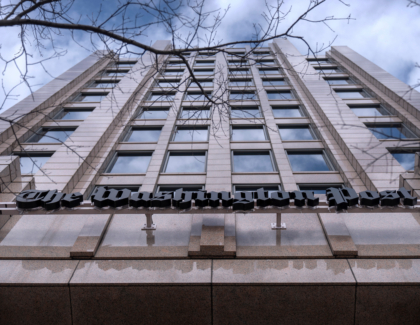Sign up for the daily CJR newsletter.
NEVADA — “Is it safe?” It’s the short question a former Nazi dentist asks of a grad student (Dustin Hoffman) in the 1976 movie, Marathon Man, before ramming a metal pick into an exposed nerve in Hoffman’s mouth.
For years now, Yucca Mountain—the federal government’s choice for a nuclear waste depository—has been the collective raw nerve of Nevadans who repeatedly wonder, “Is it safe?” (and then, nearly in unison, answer their own question, “No.”)
While the Obama administration has, at least temporarily, shut down the project, Yucca Mountain’s future remains a galvanizing force in the Silver State. Virtually every elected official here—regardless of party—opposes the nuke dump.
So it’s fitting that “What would you do about Yucca Mountain?” was among the four questions—along with queries about job creation, home foreclosures, and illegal immigration—that the Las Vegas Review-Journal’s Laura Myers posed to the four remaining GOP presidential contenders ahead of Nevada’s Republican caucuses this Saturday. Myers compiled the candidates’ answers in a piece Sunday headlined, “Final four GOP contenders address key Nevada issues.” It’s the sort of piece that should be done by Nevada newspapers for Nevada voters with less than a week until the GOP caucuses: Tell readers where the candidates stand on key issues. (And it’s the sort of nuts-and-bolts reporting, CJR’s Erika Fry recently reported in South Carolina, for which voters— overwhelmed by news geared towards politics junkies—turn to their local newspapers.) So, kudos to Myers for doing it.
And yet, it would have been nice to see Myers include some independent reporting that brought some scrutiny to bear on what the candidates said in their answers. While, to my eyes, there aren’t any plainly unfactual howlers or outrageous rhetoric in the candidates’ answers, and while Myers may have scrutinized candidates’ positions and plans in previous reporting (although I searched and came up empty), there are places in this piece where Myers could have done more for readers.
For example, Rick Santorum said (in answering the question, “What would you do to create jobs?”) that his “pro-growth plan will unleash job creation and by one estimate create more than 10 million jobs in three years and double real GDP growth.” Well, is that estimate credible? More generally, what is the likely outcome of all four candidates’ tax-cutting proposals on federal revenues, and what is the scale of program cuts that would then be required? (A recent Bloomberg BusinessWeek story took up this question, for example, using studies from the non-partisan Tax Policy Center).
And, in answering the question, “What would you do to address the home foreclosure crisis?”, more than one candidate either flirted with or outright embraced the notion that Fannie and Freddie Mac were largely responsible for the financial crisis (what CJR’s Ryan Chittum and others have called the “Big Lie” of the crisis). Myers might have flagged for readers that this argument isn’t supported by evidence.
Both Romney and Gingrich said they would address the home foreclosure crisis by repealing the Dodd-Frank legislation. In a footnote to her 2,700-word piece, Myers notes that “the Dodd-Frank Wall Street Reform and Consumer Protection Act, enacted in 2010, created new financial regulatory processes.” That’s the extent of the explanation. Readers could benefit from a further explanation of this bill—easy for a reporter to find—and also from some digging as to whether such a repeal really would be beneficial, and why. Las Vegas is full of mortgage experts who could weigh in on the viability of the candidates’ positions on this.
When a candidate makes specific claims about what the consequences of his proposed policies will be, reporters should evaluate the credibility of those claims. When a candidate makes unsupported claims about what the consequences of other polices have been, reporters should note that they’re unsupported. When the candidates don’t talk about an obvious consequence of their policies, reporters should get that in there too.
Asking the candidates the right questions—as Myers did here, on where the candidates stand on issues of local import like the ultra-sensitive Yucca Mountain—is one part of a political reporter’s job. Helping readers evaluate the candidates’ answers is another.
Has America ever needed a media defender more than now? Help us by joining CJR today.






